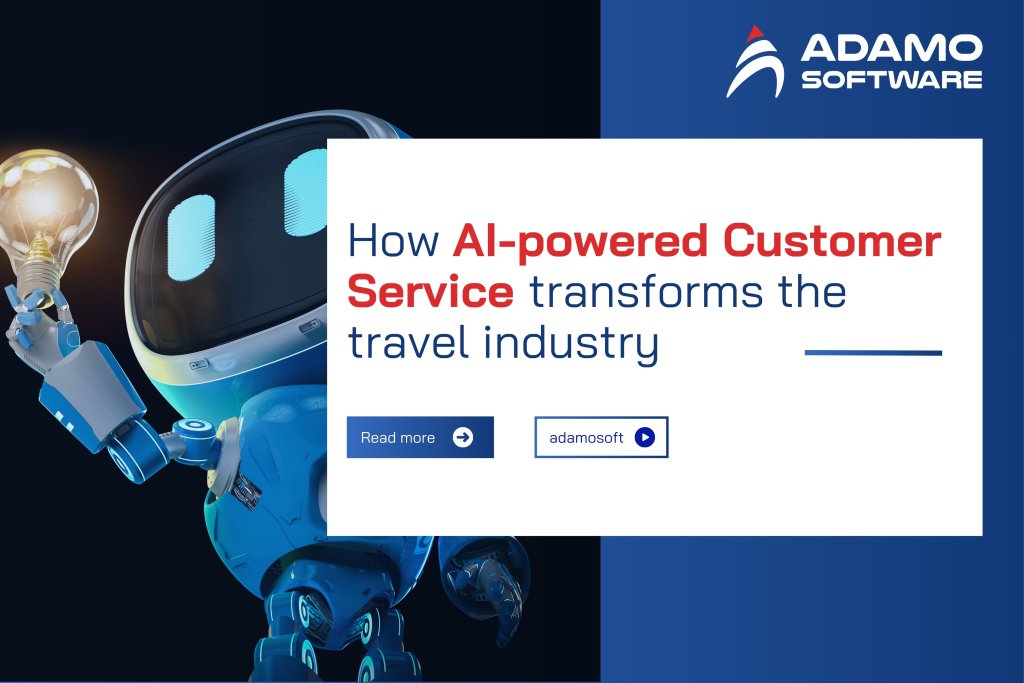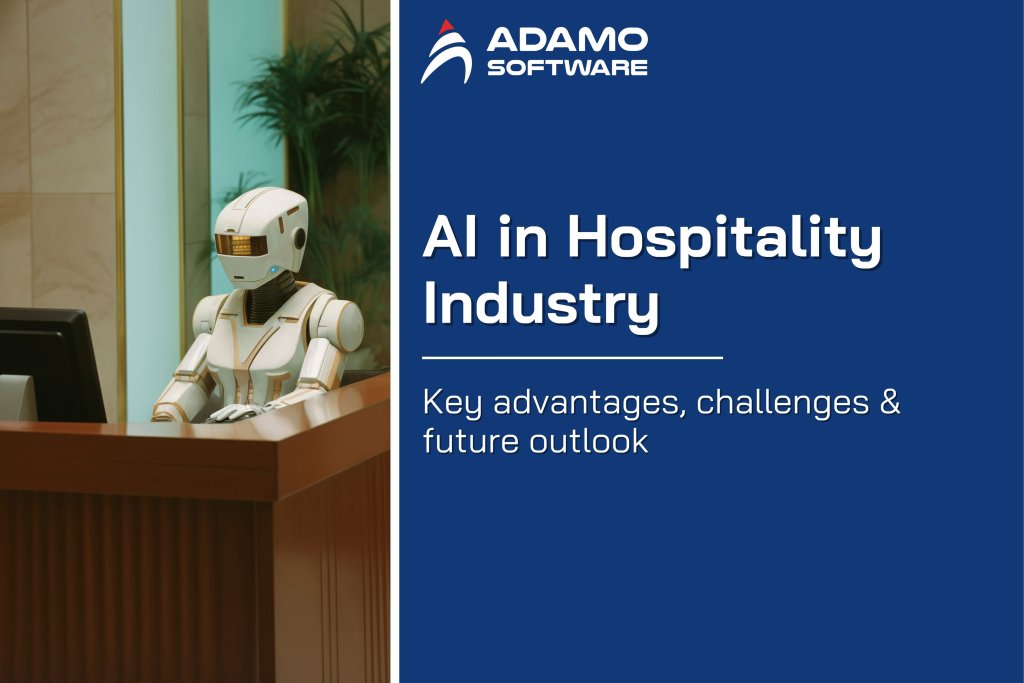Travel Content Management System: Types, Features & Top Picks
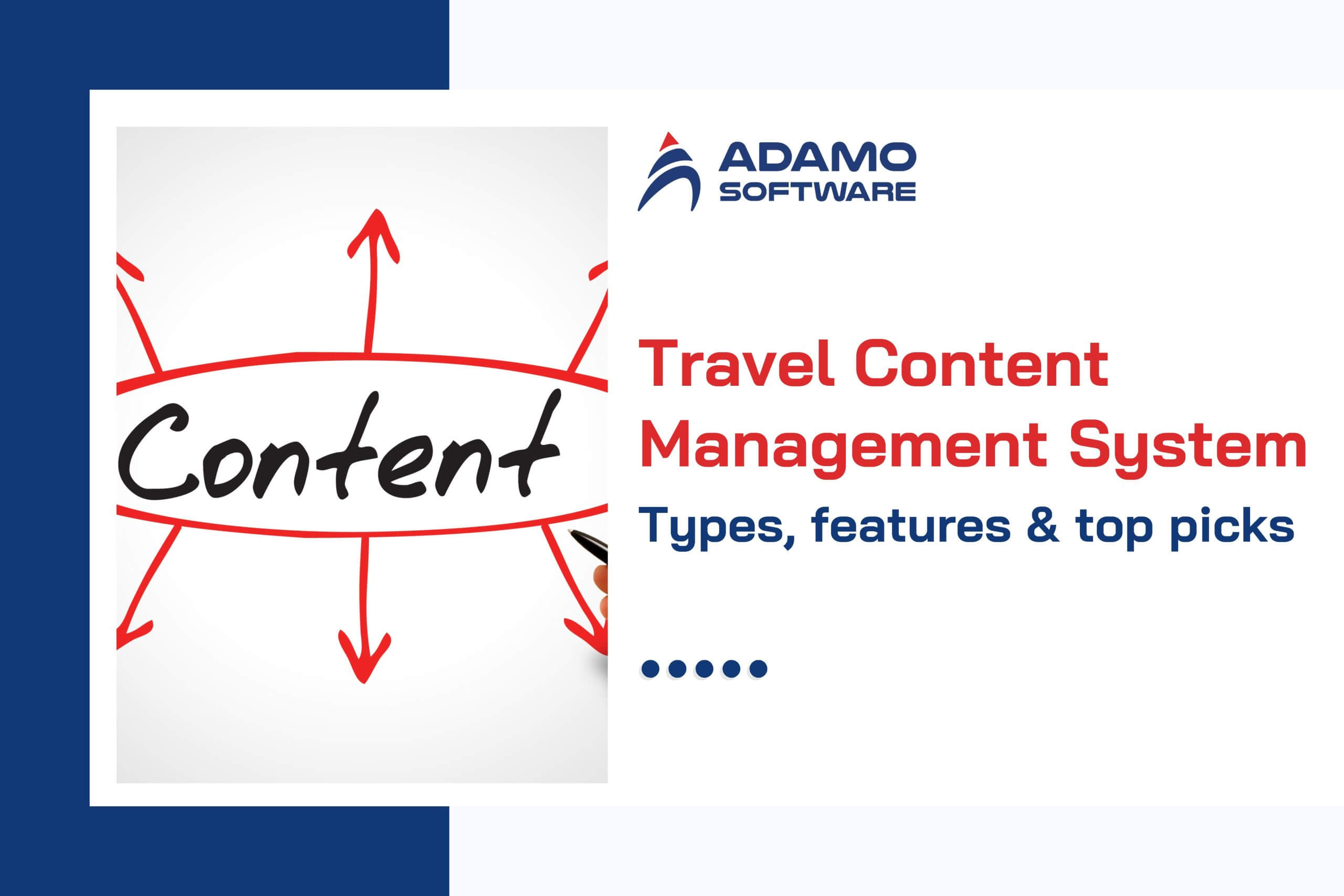
Simplify your site with a travel content management system. Compare top tools, explore features, and choose the best fit for your needs.
The successful operation of travel content presents an essential need for modern businesses that want to engage their audience and generate bookings. An organized travel content management system (CMS) serves two important purposes: operational improvement, interface enhancement, and market competitiveness. This system controls travel-related content with high efficiency for updates and allows users to receive an accessible presentation of this information.
Each travel industry segment, from agencies to operators and providers, will benefit from an appropriate CMS system to improve their online brand perception. By centralizing your content, you gain automated update functions with personalized user experiences to boost engagement and convert more site visitors.
Selecting the best travel content management system is a complex task due to the numerous available options. This article provides detailed information about travel CMS types and their essential features. It also features selected top systems to assist your decision-making process.
I. What is a Travel Content Management System?
A travel content management system is a web-based platform that helps travel companies manage their content efficiently. It enhances their online presence for publication. The system offers real-time website control features that allow businesses to modify their tour packages, itineraries, and other travel information in real-time. It also features a simple back-office dashboard allowing non-technical staff members to handle all website content through a self-service interface.
A travel CMS improves customer interaction between businesses and their clients through its essential content management capabilities. A business strengthens client relationships by providing personalized and current content, enabling more effective customer interactions. All team members can work together effortlessly through the system while ensuring their contributions maintain the brand identity and organizational goals.
Through their travel content management system, businesses can sustain an active online presence that simplifies their operational processes. The centralization of content management assists companies in concentrating on premium travel services for clients while maintaining digital market competitiveness.
II. Main types of travel portal CMS
Selecting the appropriate travel content management system (CMS) requires a target understanding of the basic system types. You need to understand each version’s strengths and weaknesses since your business demands need alignment with these factors. There are three main categories of travel portal CMS, which include:
1. Open-source CMS
Open-source CMS platforms provide businesses with technical expertise and their solution for free while enabling high customization, making them a popular choice. Development of these systems occurs through global partnerships between developers who provide diverse extensions as plugins and modules to enhance functionality. The need for database programming experience exists for operational use, yet these systems let businesses build customized solutions at lower prices while remaining affordable.
Open-source CMS platforms deliver optimal benefits for small- to medium-sized travel companies who need to run content operations while avoiding major initial expenses. A large community provides quick detection of system bugs and fast resolution. Additionally, they contribute to developing new features that keep platforms updated with modern web technology.
Open-source CMS provides users with the possibility to modify each system component independently. Travel companies can establish their own customized product experience through open-source CMS tools to match their corporate brand. However, its complexity stemming from technical requirements hinders businesses lacking development staff. Open-source CMS platforms have experienced usability improvements over time, expanding their user reach.
2. Proprietary (Own-developed) CMS
Specific business needs prompt some organizations to construct their travel content management system. Custom-built travel management systems may contain special functionality that addresses specific marketplace needs.
Present-day open-source options have reached levels of sophistication and user-friendliness, which leads businesses to prefer them over proprietary systems. Still, custom CMS systems companies retain practicality when commercial platforms cannot support particular uses. The combination of specialized travel products makes existing CMS solutions unable to fulfill the travel company’s distinct operational requirements. Such situations call for custom CMS development because it enables businesses to incorporate essential features unavailable elsewhere and establish a competitive advantage.
Using proprietary CMS systems provides businesses with better control and improved security. The company maintains complete leadership over the entire development process and maintenance tasks. Managing sensitive customer information becomes crucial for companies that function under regulated environments. A customized CMS demands large capital and extensive development periods because development and maintenance require extensive development resources. The company’s internal capabilities are the sole determinant for delivering updates and bug fixes to the system. This proves to be limited compared to open-source community support.
3. Commercial CMS
Commercial CMS platforms function as ready-made end-user-oriented products that developers create and sell to customers professionally. Ease of use combines with the capacity to scale operations and streamlined workflows, essential features of these CMS systems. Businesses that seek reliable solutions alongside growth potential should consider commercial CMS because it includes reliable support services and regular updates.
The cost premium of proprietary commercial solutions offsets against friendly features, which earns them popularity among corporate entities seeking inclusive software solutions. Large travel companies should opt for commercial CMS platforms, as they efficiently handle high traffic and complex content requirements.
The main advantage of commercial CMS emerges through complete support systems. Users have multiple benefits through their access to dedicated customer service teams. They also have extensive documentation and training resources to reduce the difficulty of learning the new system and maximize system potential. Additionally, commercial CMS platforms seamlessly integrate with CRM and marketing tools, enhancing the digital strategy for businesses.
However, the initial investment for commercial CMS products becomes a financial barrier discouraging smaller organizations from using them. At the same time, their capability to personalize the system remains more restrictive than what open-source platforms provide. Organizations tend to select commercial CMS platforms because such solutions offer reliable scalability for their business expansion targets despite their initial cost implications.
III. Essential factors to consider when choosing a CMS
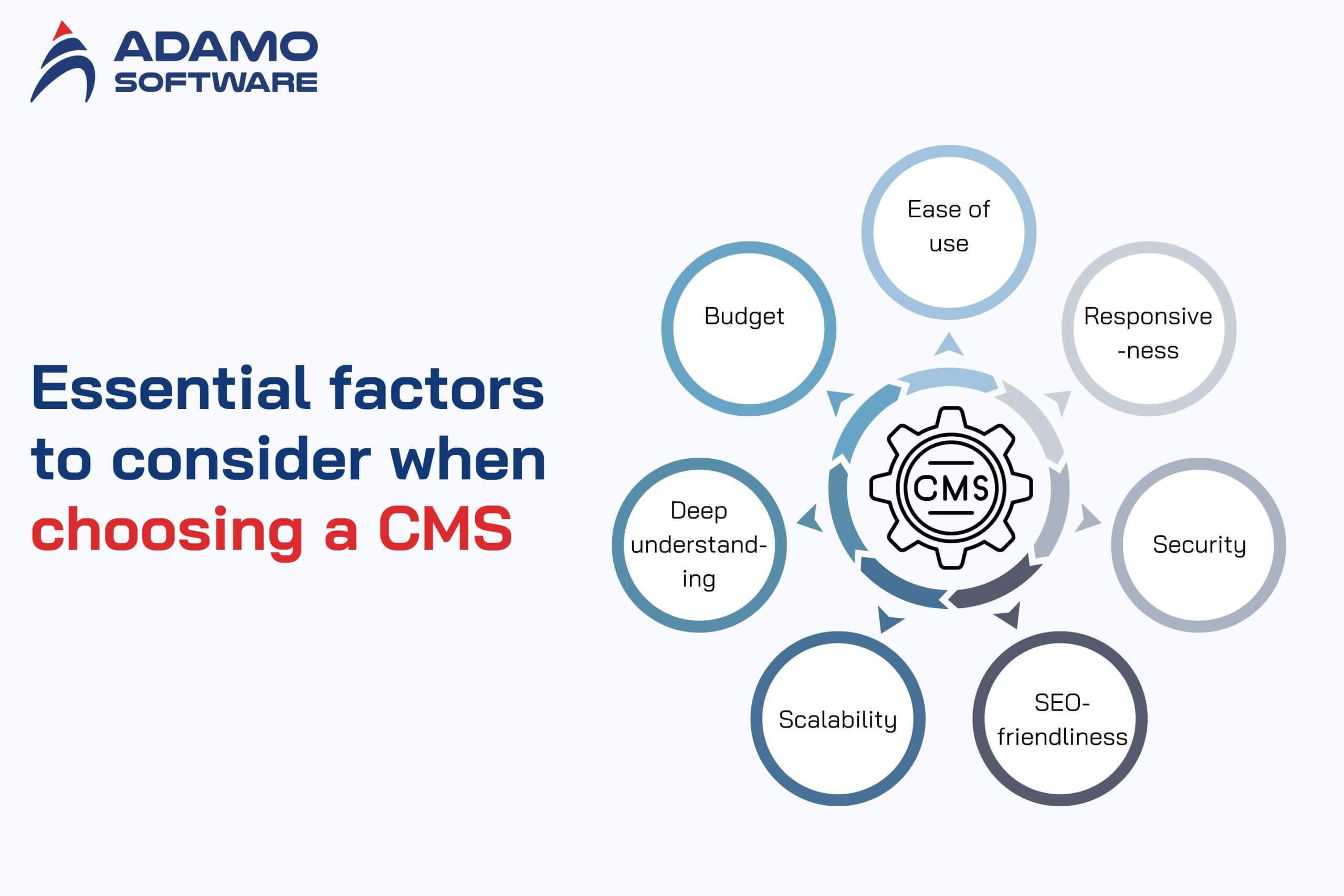
Ease of use
Travel content management systems exist to simplify tasks, but they should also deliver varying user-friendliness to their customers. Select a CMS platform with an intuitive interface, and its technical complexity levels should be minimal. A CMS built with an easy-to-use interface and features, including drag-and-drop editors, pre-made templates, and built-in SEO tools, saves time and effort during management. The platform’s simplified learning experience enables you to concentrate on developing exciting travel material instead of platform maintenance.
Responsiveness
Responsive CMS needs to be a requirement because mobile searches now exceed desktop searches. A travel content management system must give your site flawless performance across different devices. Thanks to responsive templates and mobile previews, your site content should load quickly and look great on all devices. Creating a specialized mobile application is recommended to provide users with an interactive experience. This can enhance brand exposure when finances and schedules allow.
Security
Security isn’t optional – it’s a must. When selecting a travel content management system, choose platforms that update automatically. Additionally, ensure they offer database encryption and protection against malicious attacks such as brute force and malware.
MFA offers strong protection against unauthorized access, and therefore, it represents a crucial step for securing user accounts. Travel sites must implement strong security measures to safeguard sensitive customer information, ensuring trust and confidence among users remain high.
SEO-friendliness
A travel website needs excellent SEO to generate traffic and capture customer bookings. Your selection of a travel content management system should prioritize built-in SEO tools for customizable metatags, description texts, alternative images, and clean address links. Search engine rankings rely on XML sitemaps, optimized page titles, and refined headings and content.
The right CMS system enables users to create internal links without effort while simplifying social media content sharing for all platforms. The implemented features boost your visibility, which leads to improved search engine results and positioning for Google. Research by Backlinko indicates that 0.63% of users navigate to page two of search results. However, higher search engine rankings significantly boost the probability of user clicks.
Scalability
Your travel content management system also requires expansion whenever your site expands in size. Select a CMS platform to manage higher website traffic levels and expand content databases over time. Upgrades and functionality enhancements should be supported by the platform but avoid requiring a full replacement of the current system. Your site can better meet audience demands by working with web developers who will provide tailored solutions to enhance user experience and functionality.
A CMS built for growth needs to offer simple connections with various third-party solutions, including email marketing and social sharing features. It should also provide data analytics and mobile app development abilities. Your CMS features will provide extended value through flexible capabilities that permit your system to transform as your business demands and technological progress develop. An expansion-focused CMS allows you to address future demands while maintaining superior user quality.
Understanding the goals of your website
A travel content management system selection requires defining all necessary website objectives. Your website serves either as a travel inspiration blog and booking transaction platform or combines both types of functionalities. The system requirements for your CMS derive from your defined goals.
Identifying your target market and their personal preferences is equally vital to successful website operations. The required features of a Swiss hut-to-hut backpacker-focused website differ substantially from those of a high-end traveling website for luxury expedition seekers. The CMS must follow your audience’s expectations through functionality that best suits their preferences.
Budget considerations
When selecting a travel content management system, you should estimate the entire expense of ownership (TCO). Your costs for a CMS must include initial licensing or subscription fees, regular maintenance charges, and the costs of scaling your operations. Bypass has no critical steps, including establishing an online business bank account for better financial management.
Open-source or proprietary CMS systems require evaluation to match your finances and operational requirements. Low initial expenses exist with open-source CMS options, although these systems usually need experienced IT staff to maintain them properly.
Resource management software should be used to maintain budget control and surprise prevention. The selected tools will help identify savings in the CMS development process, ensuring budget control for your travel business until it grows.
IV. Highly recommended Travel Content Management System for travel agencies
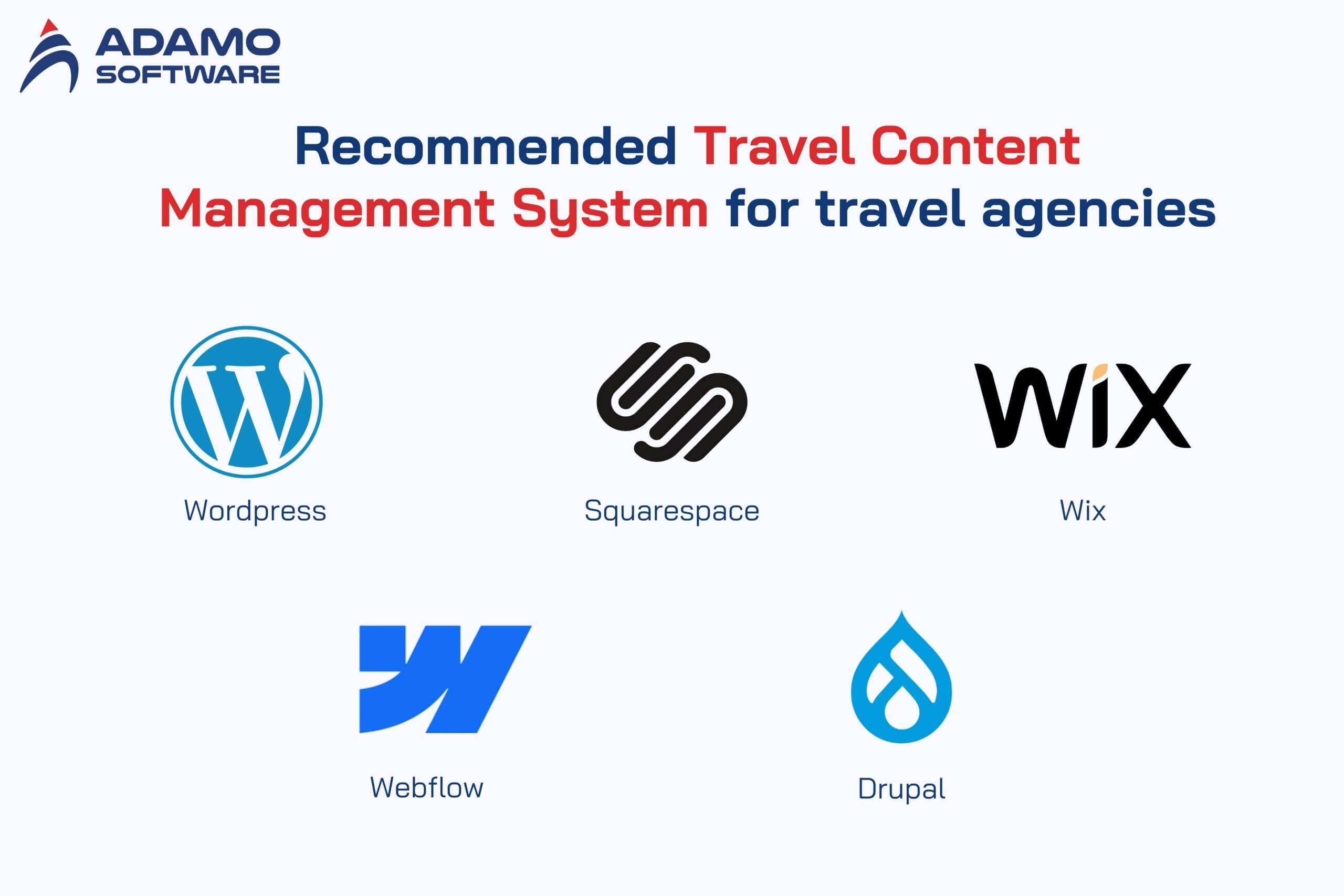
WordPress
People use WordPress as an open-source travel content management system because it allows for effective website control. It powers over 35% of all sites worldwide, making it an ideal solution for travel agencies. Updating the platform allows users to acquire thousands of travel-specific themes and plugins for industry enhancements.
Using WordPress will enable agencies to build landing pages efficiently and produce destination blogs and tour displays. Customers can make tour or accommodation reservations directly from the website through built-in booking tools. The platform maintains a simple interface, which makes it easy for novices to learn how to use it.
Overall functionality extends beyond what some users need when they want straightforward solutions. Other than that, WordPress is a flexible and expandable platform that effectively manages travel-related content for various needs.
Squarespace
Squarespace is an appealing travel content management platform for travel agencies, allowing non-technical staff to design attractive sites easily. The platform offers drag-and-drop functionality and designer templates that help users create professional sites quickly. Squarespace positions its interface as simple and easy for users who want basic controls and functionality.
Travel businesses benefit from this platform since it combines vital elements, including blogging features, e-commerce tools, and email marketing instruments. Users receive an all-inclusive package that combines domain and hosting services and a monthly payment through Squarespace. Smaller to medium-sized travel agencies should consider Squarespace an effortless solution to control their travel website content.
Wix
Wix enables businesses to design stunning sites through its travel content management system, which requires no technical skills. The platform delivers expert templates and a straightforward editor, allowing travel agencies to build personalized websites easily. Wix provides necessary capabilities regarding blogging and newsletter functions along with booking systems specialized for travel businesses.
The advanced booking systems require premium fees, which prevent smaller companies from accessing them unless they operate within budget constraints. Despite its pricing limitation, Wix continues to garner popularity. This is because it delivers high flexibility and straightforward operation, enabling agencies to maintain their online identity successfully.
Webflow
Webflow provides an extensive travel content management system for agencies and designers who need creative freedom over their site creation process. Webflow users can leverage tools to create fully customized websites that align closely with their brand identity.
The learning process for Webflow will be difficult for companies that either lack web design talent or funding to hire professionals. Combining skills and budget enables users to use Webflow for limitless control when managing travel-related content. Webflow’s ability to create personalized websites makes it the top choice for travel agencies aiming to lead their market segment.
Drupal
Drupal is an open-source travel content management system that best serves large travel agencies that employ their developers. The technical nature of Drupal requires expert handling because it provides strong functionalities, including multi-language capabilities, tour booking modules, and review system features. The combination of features suits global travel companies that wish to deliver customized service to their customers throughout various markets.
Agencies can rely on Drupal for the long term, as it requires initial investment and ongoing support to leverage its powerful features effectively. Small businesses without technical skills and companies that need basic CMS complexity should consider using WordPress or Squarespace instead of Drupal.
Read more: Hotel CMS: How It Works, Key Benefits & Choosing the Right System
Ready to Outsource?
Discover how we can transform your business with expert IT solutions.
V. The process of making a new travel website
Website development for travel begins through foundational meetings that clarify the company’s existing difficulties, marketing targets, and site requirements. The first meeting is an essential foundation for the whole project because all essential decision-makers must participate during this phase. A web agency team will complete an extensive evaluation that evaluates online potential and best practices while providing selection strategies to the company. The assessment procedure needs integration of travel content management systems that provide streamlined content production and administration capabilities.
Additional perspectives allow organizations to test their current digital plans and upgrade the value delivery system customers encounter before and after their purchases. The outside viewpoint enhances the capability to optimize the travel content management system for optimal customer service delivery. Users’ experiences benefit most when suppliers establish a central role that focuses on improving the organization of site design. This includes page ordering that follows standard principles for design and communication. The website layout and essential components become visible during wireframe development, where designers present website design principles through these frameworks.
The supplier undertakes user evaluations of the current website, followed by wireframe showings for the upcoming site during the development phase. The examination process enables staff to recognize strategic improvement zones, which helps maximize user engagement by using the travel content management system.
The operational design of the website needs precise planning regarding layout structure and element organization. Organizations should deploy new design templates that follow visual communication standards and support web media’s distinct characteristics. Agencies achieve efficient travel content management by adopting a travel content management system to deliver seamless user perceptions across digital channels. The strategy enhances website aesthetics and functions effectively as a travel content management system, helping the agency build a strong digital presence.
VI. Adamo Software is your ideal partner for your custom Travel CMS idea
With Adamo Software, your travel content management system development needs will be perfectly addressed to precisely match your agency’s operations. Our specialized knowledge allows us to execute flawless integration of modern features for inventory management, booking system automation, and workflow automation.

We can help you build interfaces that maintain friendly operations and improve employee and customer engagement. You’ll get a trustworthy collaboration with Adamo that improves efficiency and protects data security protocols.
Contact us to start building your travel content management system for successful industry competition.
FAQs
1. What is travel CMS and how is it different from regular CMS?
A travel CMS is a specialized content management system designed for the travel industry. Unlike standard CMS platforms, it includes built-in features such as tour and hotel management, flight and itinerary modules, travel agent dashboards, and multi-currency pricing—allowing travel businesses to manage and display industry-specific content seamlessly.
2. Are there content management systems that cater specifically to travel bloggers?
Travel bloggers benefit greatly from CMS platforms that offer flexible content types, strong SEO support, media-rich layouts, and scalability for growth. Examples include WordPress (widely used for travel blogs thanks to themes/plugins and strong SEO tools) and Ghost (designed for publishing and content-first experiences). While not travel-specific in every case, these systems offer the necessary features—such as easy media uploads, blogging workflows, multi-language or regional support, and plug-ins/extensions for travel-related features.




